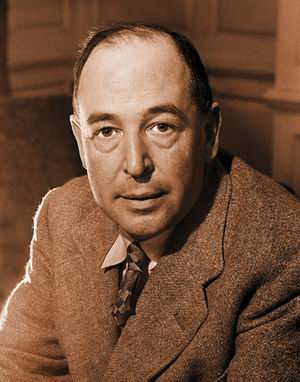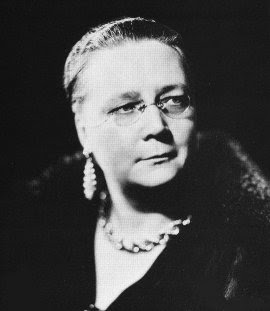In my last post, I showed how C. S. Lewis and Dorothy L. Sayers first made a connection. I mentioned in passing his reading of her book, The Mind of the Maker. He read it shortly after it was published in 1941 and then wrote a review of it in the journal Theology. He introduces the theme immediately: “The purpose of this book is to throw light both on the doctrine of the Blessed Trinity and on the process whereby a work of art (specially of literature) is produced, by drawing an analogy between the two.” Of this he wholly approves. Then he proceeds to caution the reader about the one feature of the book that gives him concern:
I think that in an age when idolatry of human genius is one of our most insidious dangers Miss Sayers would have been prudent to stress more continuously than she does the fact that the analogy is merely an analogy. I am afraid that some vainglorious writers may be encouraged to forget that they are called “creative” only by a metaphor—that an unbridgeable gulf yawns between the human activity of re-combining elements from a pre-existing world and the Divine activity of first inventing, and then endowing with substantial existence, the elements themselves.
This concern for Lewis was centered on the arrogance that sometimes infuses the mind of the artist. He merely wished Sayers had stressed more the very distinct difference between the actual Creator and humans who sub-create at a lower level.
Yet that is his only negative remark on the substance of the book.
“In general,” he continues, “I find Miss Sayers’ development of her analogy full of illumination both on the theological and on the literary side.” He singles out for praise chapters on “Free Will and Miracle,” “The Incarnation,” and “Scalene Trinities.” That last one, he confesses, “cannot be explained to those who have not read the book, but I believe it to be a really illuminating contribution to literary classification.” He concludes with appreciation for what she has offered, yet also with a warning to those who think too highly of their own literary talents:
This is the first “little book on religion” I have read for a long time in which every sentence is intelligible and every page advances the argument. I recommend it heartily to theologians and critics. To novelists and poets, if they are already inclined in any degree to idolatry of their own vocation, I recommend it with much more caution. They had better read it fasting.
In their early correspondence, Lewis doesn’t really expound further on his views of The Mind of the Maker, but an analysis of some of the concepts within it may offer some clues as to what else he would have admired in the work. For the purposes of this post, I’ll give just one example (more to come later in future posts, I’m sure).
The very first chapter, “The ‘Laws’ of Nature and Opinion,” serves as a complement to the way Lewis later expounded on the subject in Mere Christianity. There is a reality built into the universe, Sayers asserts, that no one in his right mind would ever attempt to deny.
If the M.C.C. [Marylebone Cricket Club] were to agree, in a thoughtless moment, that the ball must be so hit by the batsman that it should never come down to earth again, cricket would become an impossibility. A vivid sense of reality usually restrains sports committees from promulgating laws of this kind; other legislators occasionally lack this salutary realism.
Even the subtle sarcasm toward the government that she adds at the end would probably find a receptive audience in Lewis.
Sayers goes on to say that there is a universal moral law that is behind even the moral code by which a society may function. Christianity, she maintains, has called this the natural law, and “the more closely the moral code agrees with the natural law, the more it makes for freedom in human behavior; the more widely it departs from the natural law, the more it tends to enslave mankind and to produce the catastrophes called ‘judgments of God.’” A society may have a moral code that wants people to behave like St. Francis, she posits, but what if that society prefers a code more in line with the Emperor Caligula? One must then refer to the natural law upon which the moral code ought to be based. By doing so, one should be able to prove “at the bar of experience, that St. Francis does in fact enjoy a freer truth to essential human nature than Caligula, and that a society of Caligulas is more likely to end in catastrophe than a society of Franciscans.” Her conclusion is very Lewis-like:
Defy the commandments of the natural law, and the race will perish in a few generations; co-operate with them, and the race will flourish for ages to come. That is the fact; whether we like it or not, the universe is made that way. This commandment is interesting because it specifically puts forward the moral law as the basis of the moral code: because God has made the world like this and will not alter it, therefore you must not worship your own fantasies, but pay allegiance to the truth.
This is only one example. The Mind of the Maker has other concepts that Lewis liked very much. I’ll continue his commentary on it in a future post.



